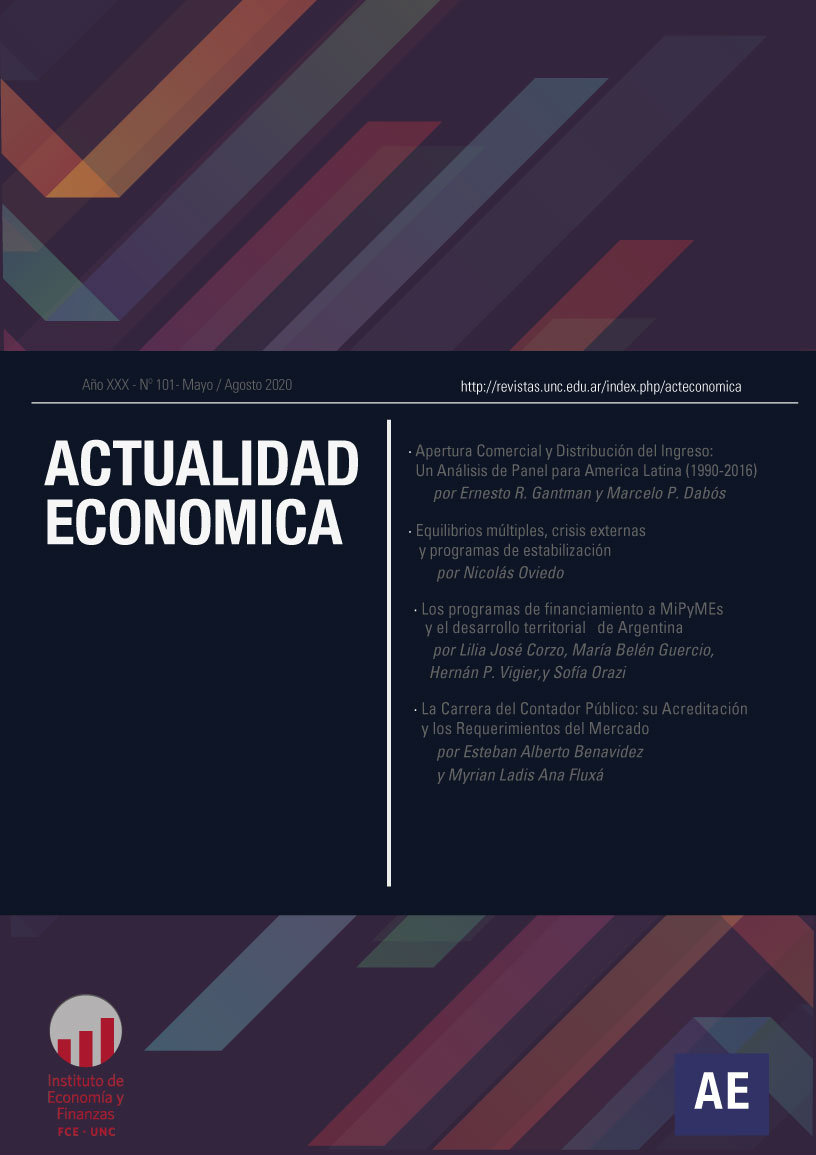The Career of the Public Accountant: its Accreditation and Market Requirements
Keywords:
Training, Capacity, Compentency, Accreditation, Public AccountantAbstract
The cultural, social and economic changes resulting from globalization pose new demands for those who practice the profession of accountant. To face the changes they must develop an attitude of permanent learning. To try to find out what standards the Public Accountant career should meet, the international training pronouncements proposed by IFAC are analyzed, which, we assume, aim to face the challenges to the profession in the 21st century. Likewise, the situation in Argentina is analyzed, in particular the guidelines established by the Ministry of Education for the accreditation of the Public Accountant career, through its Resolution 3400/17. If both pronouncements are compared, it is noted that IFAC's appears to be adequate for market requirements. That of Resolution 3400 does not differ much, although IFAC's emphasis is on the training of Accountants who act as auditors. Likewise, it is noted that IFAC attaches great importance to professional values, ethics and attitude and we consider that it would be appropriate for our country to place greater emphasis on training in these aspects for Accountants, since the fact that professionals Act in an ethical manner is of great interest to society.
Downloads
References
FACPCE (2012) Normas Internacionales de Auditoría, FACPCE, Buenos Aires
Federación Internacional de Contadores (1998); Normas Internacionales de Auditoría, FIC, México
FIC (2002) El futuro de la profesión contable en Estados Unidos, Canadá, Reino Unido e Italia, IFAC, Santo Domingo.
IAESB (2019) Handbook of International Education Standards, https://www.iaesb.org/publications/2019-handbook-international-education-standards
Parade, R; Errecaborde, J.; Cañada, F., (2014) (Compiladores); Resoluciones Técnicas Vigentes, FACPCE, Errepar.
Downloads
Published
Issue
Section
License

This work is licensed under a Creative Commons Attribution-NonCommercial-NoDerivatives 4.0 International License.
Those authors who have published with this journal, accept the following terms:
Authors will conserve their copyright and guarantee the magazine the right of first publication of their work, which will be simultaneously subject to the Creative Commons Attribution-NonCommercial-NoDerivative 4.0 International License that allows third parties to share the work as long as the author and first publication of this magazine are indicated.
Authors may adopt other non-exclusive license agreements to distribute the published version of the work (e.g., deposit it in an institutional telematic archive or publish it in a monographic volume) provided that the initial publication in this journal is indicated.
Authors are allowed and encouraged to disseminate their work through the Internet (e.g., in institutional telematic archives or on their website) before and during the submission process, which may lead to interesting exchanges and increase citations of the published work. (See The effect of open access)









